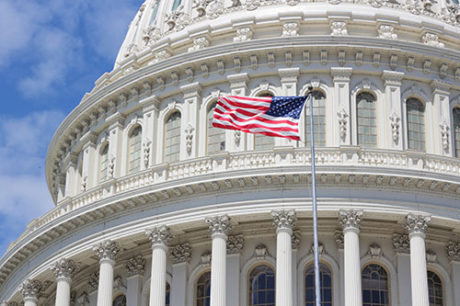
The process of submitting a proposal and then waiting on a decision, can be a detailed and lengthy process that requires a lot of knowledge. Here we will give you some tips and descriptors of each stage of the government proposal process.
The Government Request
There are three main types of government solicitation stages that rank from early stage solicitations to a final/complete solicitation. They rank in the following order:
- Sources Sought
- RFI
- RFP
With a Sources Sought, the government is unsure about what the contract will entail, so this is the earliest stage out of the three. In this stage, the government agency is doing their homework and researching potential solutions to fulfill their need.
A RFI is the next step closer to a final solicitation and is more detailed, as the agency (for the most part) now knows what it wants. These two stages, sources step and RFI, are used for procurement planning purposes.
The finalized solicitation is the RFP, which is the contract award or loss stage. Bid documents are released to bid boards describing exactly what the government wants, which is most clearly stated in the document’s Statement of Work (SOW). This is where contractors must assess the request and determine if they will be able to provide a solution. Read and analyze every section, request and requirement to ensure that you do not miss anything important. You do not want to waste time or money on a proposal that you will not win! The decision to bid on an RFP is almost as important as the actual proposal writing. It will set you up for future success or failure.
Planning Your Proposal
Once you have decided to respond to an RFP, there are some essential planning steps that you should take to ensure that your team stays on target and meets deadlines. Reread the RFP to double or triple check that you did not miss anything and that you know the deadline. To help stay on track, create a Compliance Matrix to plan the entire process. This includes information on every requirement of the proposal, who will be writing each section and when due dates will occur. However, don’t stop there! Put these dates on a calendar and check in frequently with each contributor. It would be a good idea to select a proposal manager to check in on each writer and ensure the timeline is moving as planned. Make sure all writers understand every point on the proposal. This is incredibly important as well. They must address every single point of the RFP. Encourage them to ask questions and do research! Have them take our course on the Fundamentals of Federal Proposals to become fully prepared.
Keep Scoring in Mind
Agencies have a specific grading criteria when processing proposals. The scores will typically rank in something like the following example: Excellent, Very Good, Good, Fair and then Poor. Aim to keep all of the sections of your proposal in the ‘Excellent’ range. Remember that your company will usually be competing against other government contractors so you need the best score possible. The agency will not bother with sloppy, unpolished, or incomplete proposals, they will simply move on to the next submission. If you do not have the resources to produce an adequate proposal, there are technical writers, proposal managers and editors that can be hired for assistance.
The Waiting Game
Once submitted, the agency will evaluate your proposal. The review committees will check for compliance, strengths and (hopefully not) weaknesses to reach a final score. Keep in mind that the agency may only contact the contract winner. Even when you do not win a contract, it is always important to go back and review the strengths and weaknesses of your proposal in order to prepare for future submissions, so follow up! Remember which sections received high or low scores and use that knowledge to your advantage for your next proposal.
Do you have any suggestions for businesses who are writing their first proposal? Tweet us at @MyGovContract and let us know!
 Like
Like








0 responses on "What to Look for When Preparing Your Federal Government Proposal"